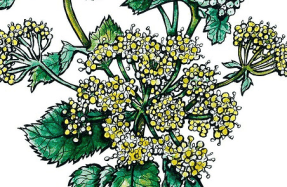
CHRISTMAS is coming and the goose is getting fat. Or so we hope. Because Britain’s poultry farmers are facing an exceptionally worrying run up to the festive season, in the shadow of the UK’s worst ever avian-flu outbreak. Currently, all birds, including free-range ones, must be kept indoors by law. Three million birds had been destroyed at time of writing. As Verity Copas of Copas Turkeys explains: ‘If our birds contract avian influenza, it would not only mean zero sales at the most important time of the year, but the end of our company, too.’
Worrying times, indeed, and, although the prospect of a Christmas without turkey or goose is a grim one, it pales in comparison to the plight of the farmers. God willing, however, all will be fine and the festive feast will continue to feature our favourite birds. Turkey is a relative newcomer to the party (save for the most regal of tables), an American arriviste popularised with the help of Dickens, Scrooge and the Cratchits. Goose, by contrast, has long been a Yuletide staple, back to when Christmas was a riotous, 12-day pagan bacchanalia of drunken carousing and lascivious high jinks (plus ça change, I hear you cry), rather than the church-going, family-friendly affair it is today.






